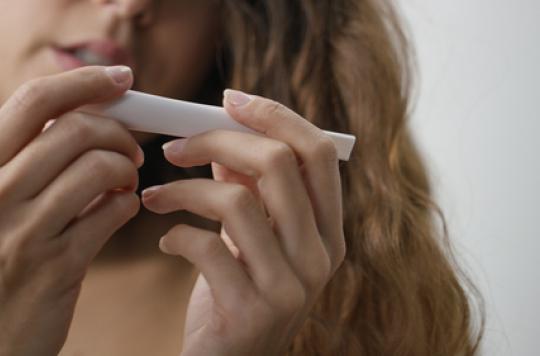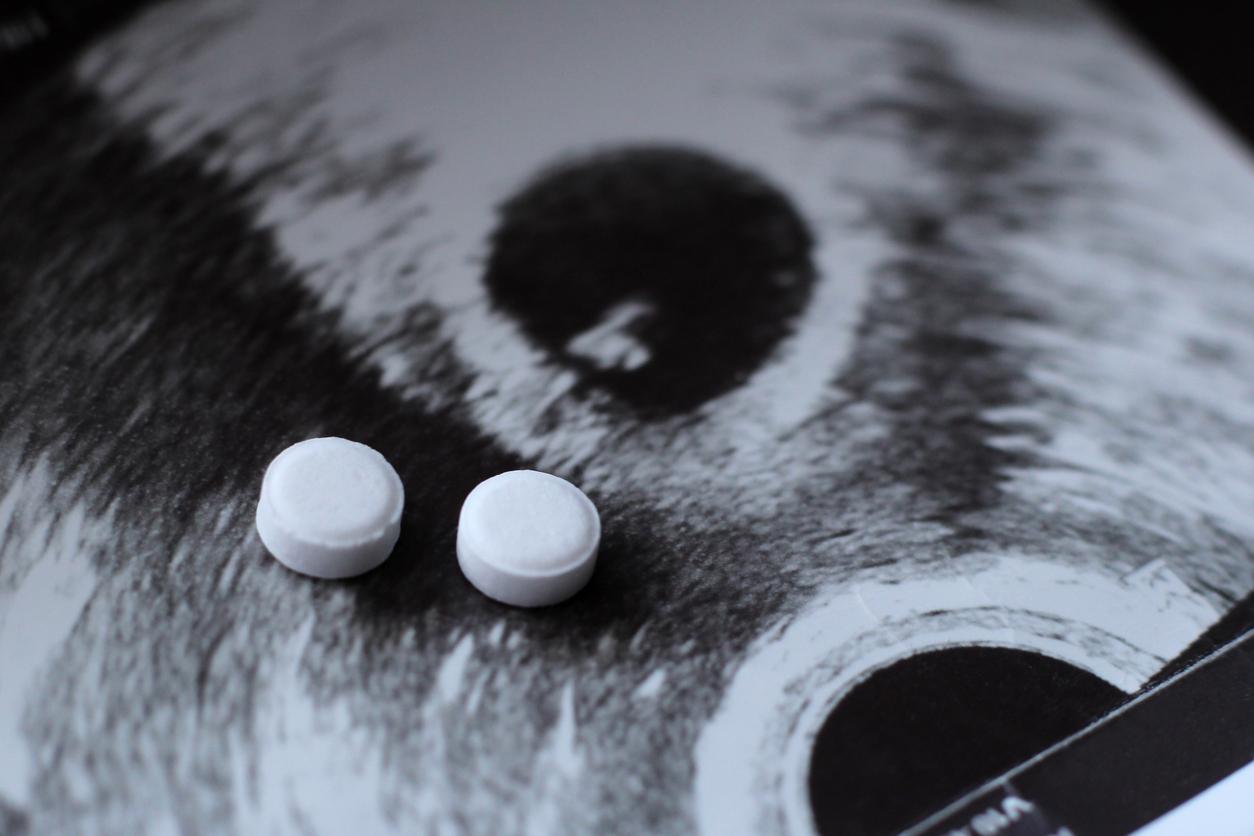A quarter of women who undergo a medical abortion have severe pain on day 3, and 8 out of ten need painkillers.

In 2015, 220,000 voluntary terminations of pregnancy were carried out in France, but one subject remains little discussed, that of pain. Suffering is however frequent during an abortion. Of the women who chose the drugs, 8 in 10 used pain relievers. A study led by the Clotilde-Vautier center in Nantes (Loire-Atlantique), and funded by the Fondation de l’Avenir, reveals this on November 18. Its findings underscore the need to pay more attention to the suffering of women.
mute science
This survey was carried out in 11 centers that perform abortion. 453 women were questioned about their feelings during the abortion. This quantitative component was supplemented by detailed interviews with 11 women who terminated their pregnancy prematurely. The medical abortion usually lasts five days. She starts taking the first medication, which prepares the body for expulsion. Pain is anything but an exception during this time.
For some, abortion can turn into an ordeal. In fact, 27% of women claim to have felt very severe pain on the 3rde day. They are equal to or greater than 8 on a scale of ten. “The study started from the field, explains to Why actor Philippe David, gynecologist-obstetrician at the IVG Clotilde-Vautier center. The practitioners and caregivers who accompany the women have realized that the pain is often very intense. But this suffering is little studied, and not only in France. The scientific literature is surprisingly silent on this subject.
Three risk factors
However, the researchers noted a peak in pain at the 3e day. The evaluation then reaches an average score of 4.7 out of 10, compared to around 2 on the other days. This variation is not due to chance. This is also the day the second medication is given. It triggers contractions and expulsion. “It is constantly the most painful day, even if over the 5 days studied, the pain remains present”, underlines Dr. David.
Precious detail provided by this study: all women are not equal in the face of this suffering. Three risk factors have been distinguished. If the patient has never had a pregnancy before, she is exposed to more painful torments. The same is true for those who usually have painful periods. However, one parameter can be changed, mifepristone administered on the first day. Two different doses were prescribed. The higher is not recommended, but it relieves the most. “It makes us think differently about the issue of pain, Judge Philippe David. I think this is a first step towards further studies on a randomized model. “
Philippe David, gynecologist-obstetrician in Nantes: ” It must be explained that the important thing is the choice in relation to living conditions, support … “
Side effects that worry
The main manifestation of the drug abortion is bleeding. But the phenomenon worries a significant proportion of the women questioned (43%). The fault lies, in part, on an overly trivialized image of abortion. An image all the more shifted as the side effects of drugs are numerous, starting with fatigue. “Patients say they have been well informed. But when they talk about the pain, they often say that they did not expect such pain, ”says Dr. David. A real paradox which does not call into question the healthcare team: 92% of women are satisfied with their support.
Philippe David : ” The medical abortion is perceived as simpler, more banal than an intrusive gesture, which requires local or general anesthesia. “
Finding a balance between openness and appeasement: this is the heart of the problem for practitioners. Especially since many women evoke a feeling of loneliness or guilt. “The pain is also increased by mental anxiety, loneliness … This is why the drug method is not universal”, indicates Philippe David. He pleads for an accompaniment in the lace, which leaves room for the well-being of the patients. If this implies higher doses of the drug, prescriptions must change. “We need to adjust the painkillers according to the reality of the woman’s need,” says the gynecologist.
Philippe David : ” An ethical reflection must develop, starting by listening to the women in their story. “
.















